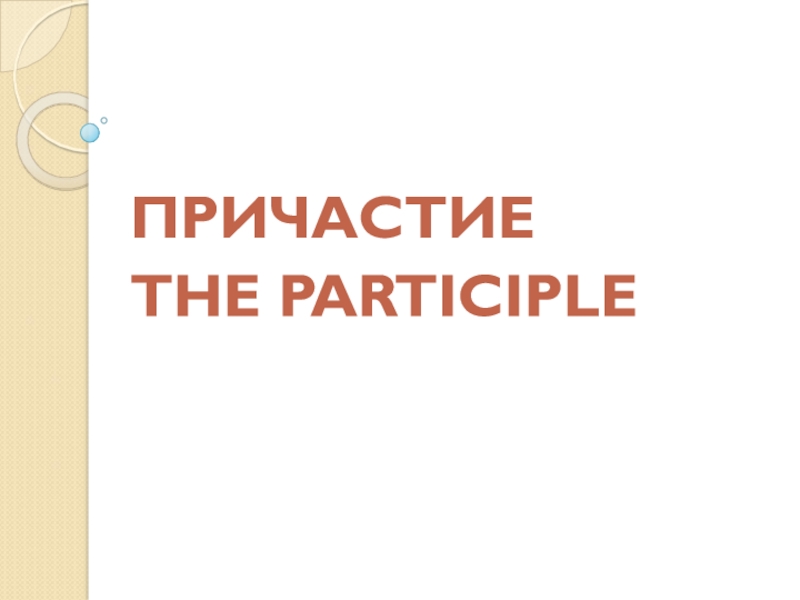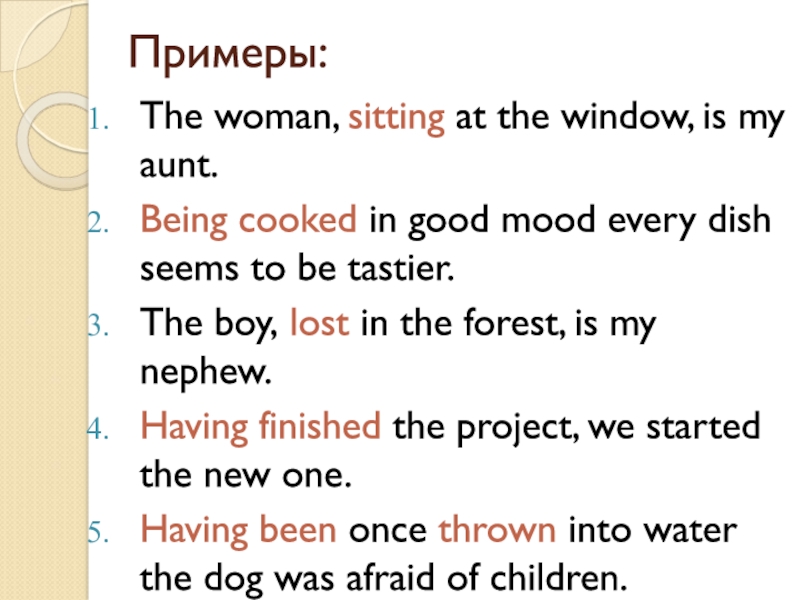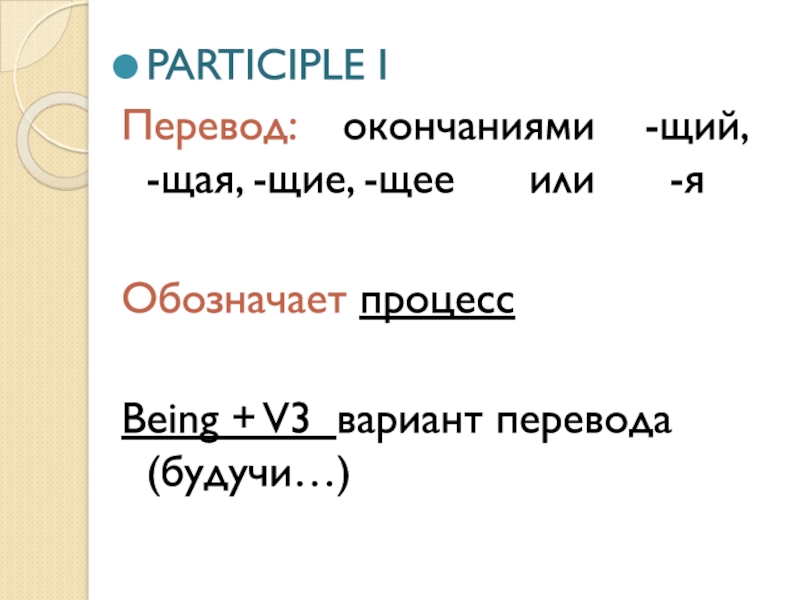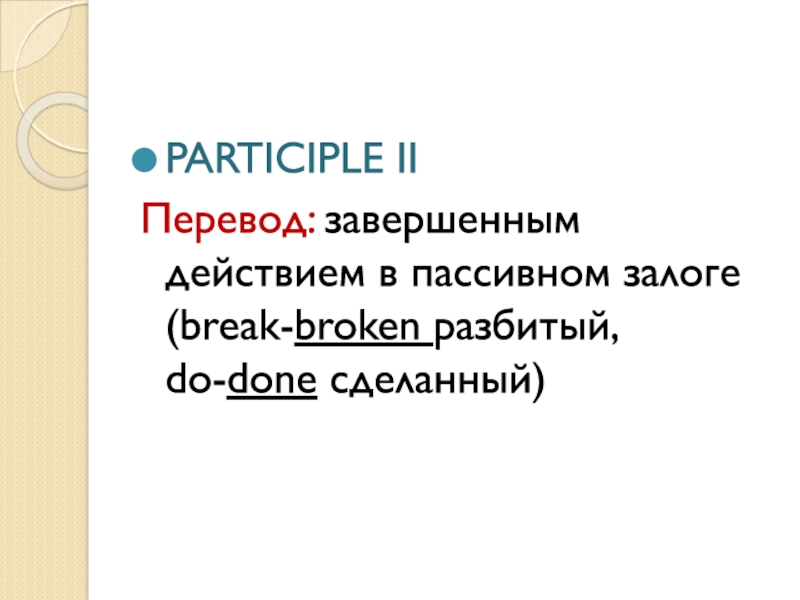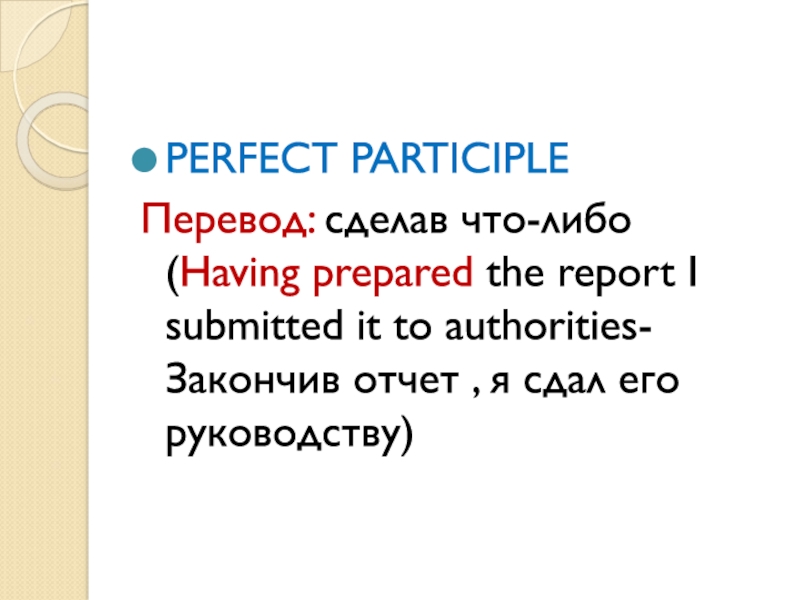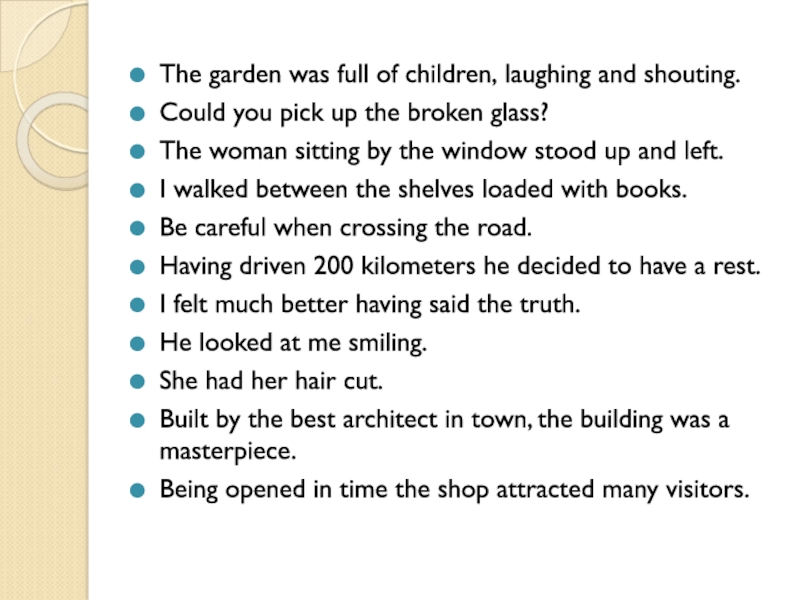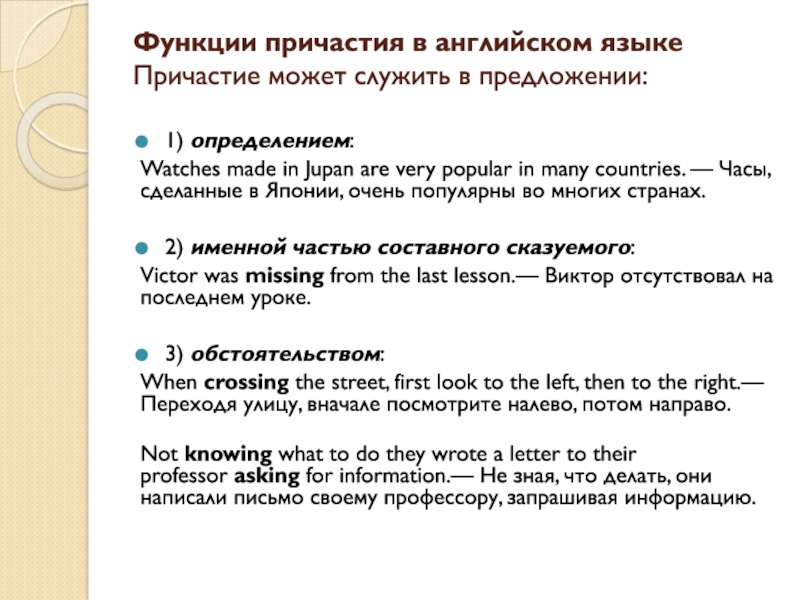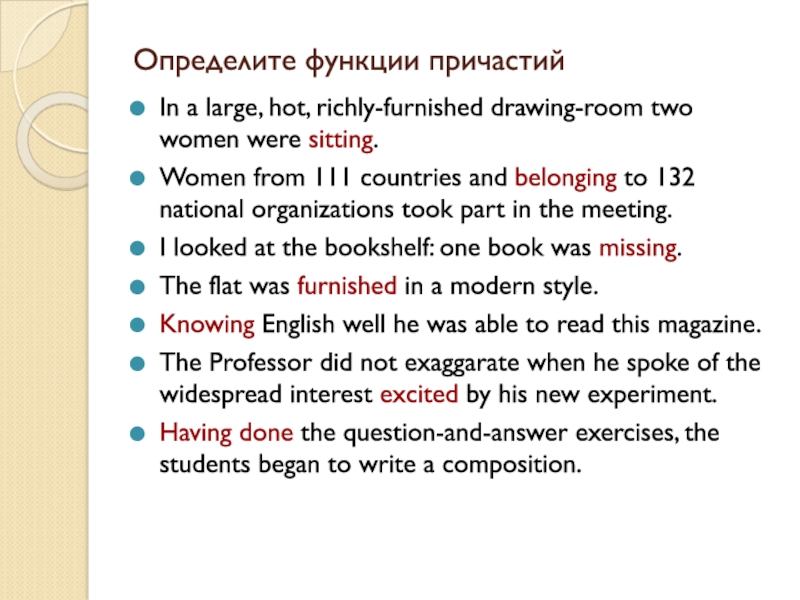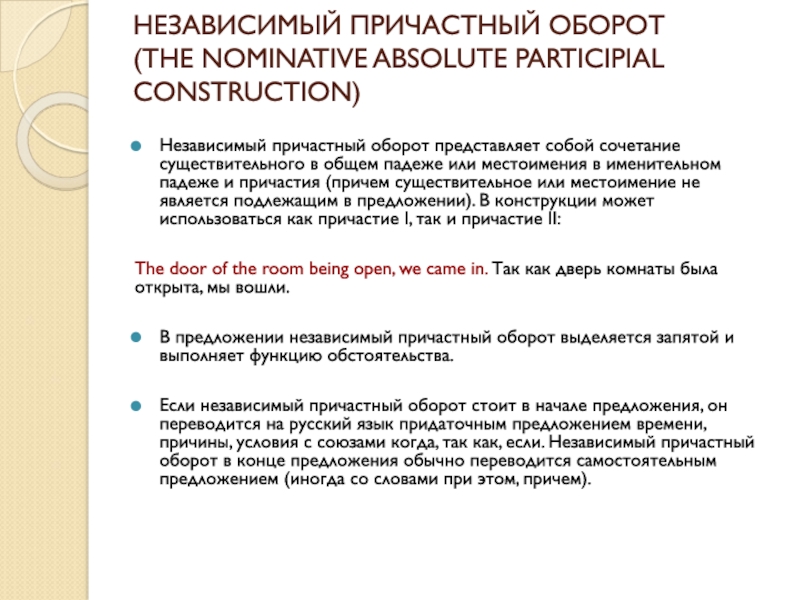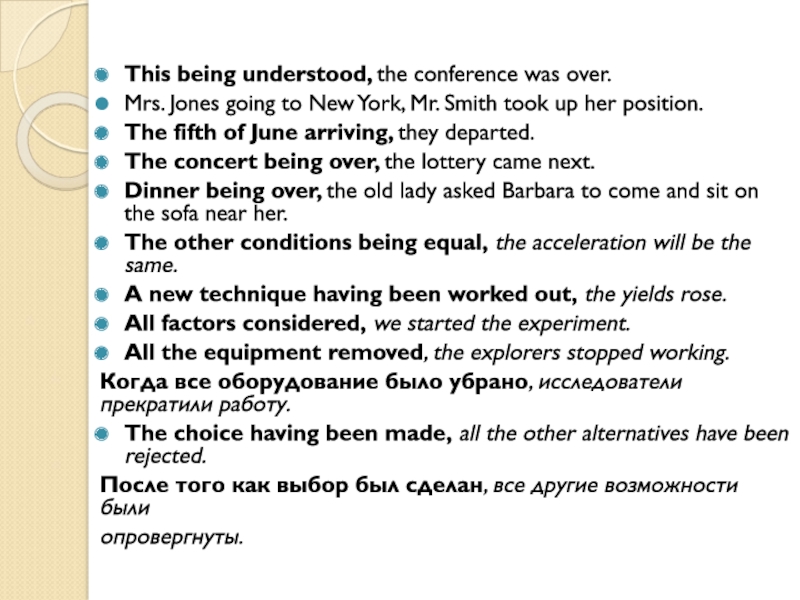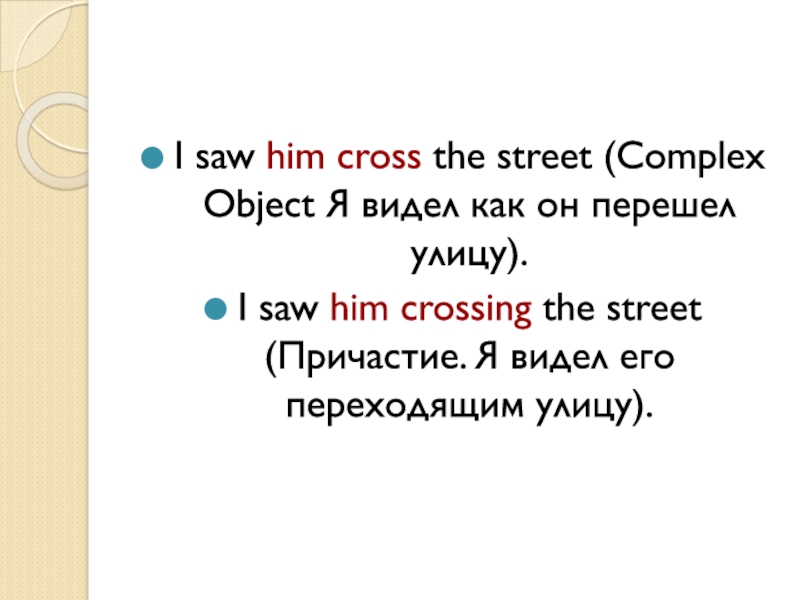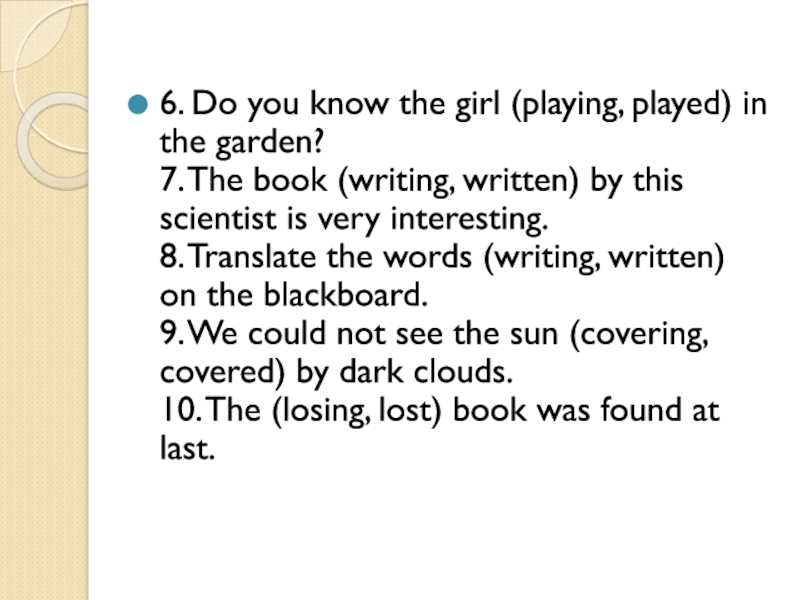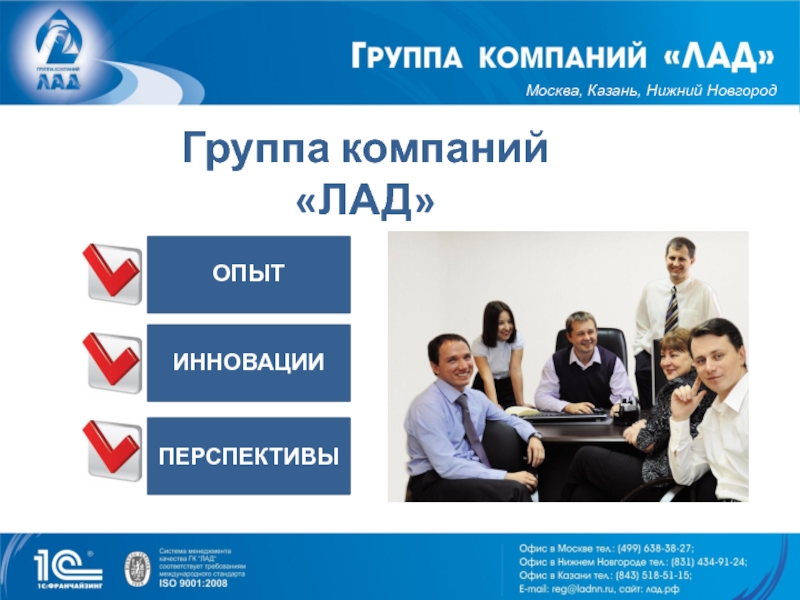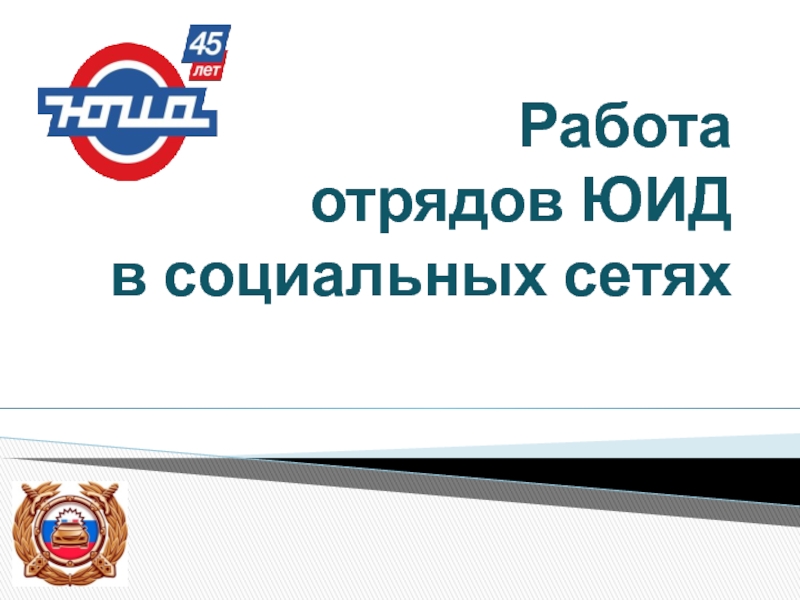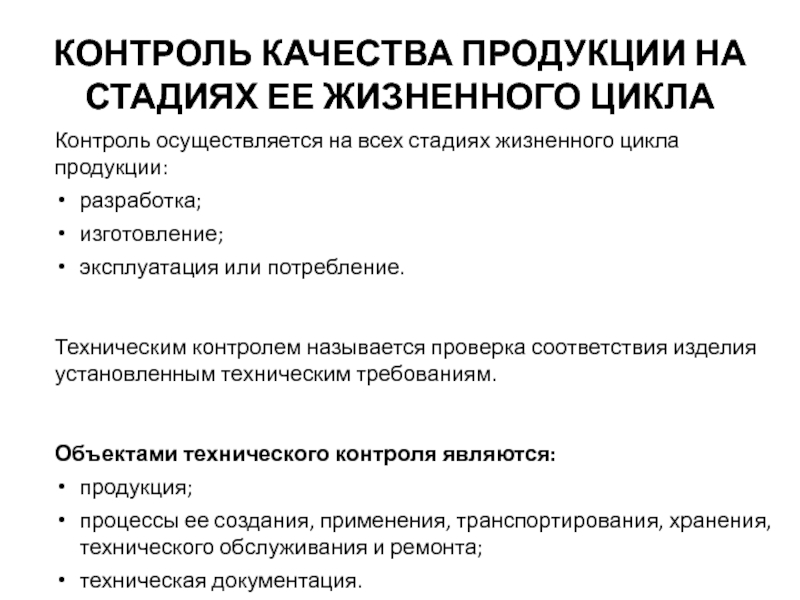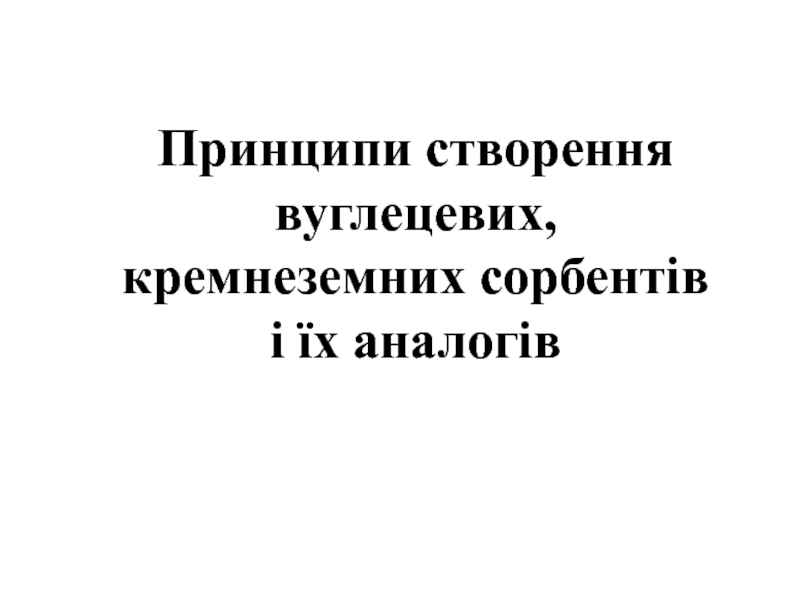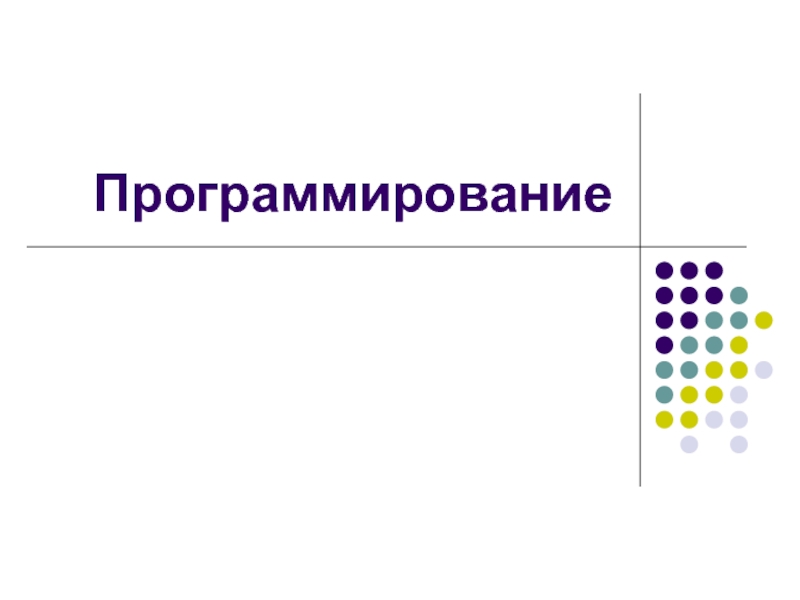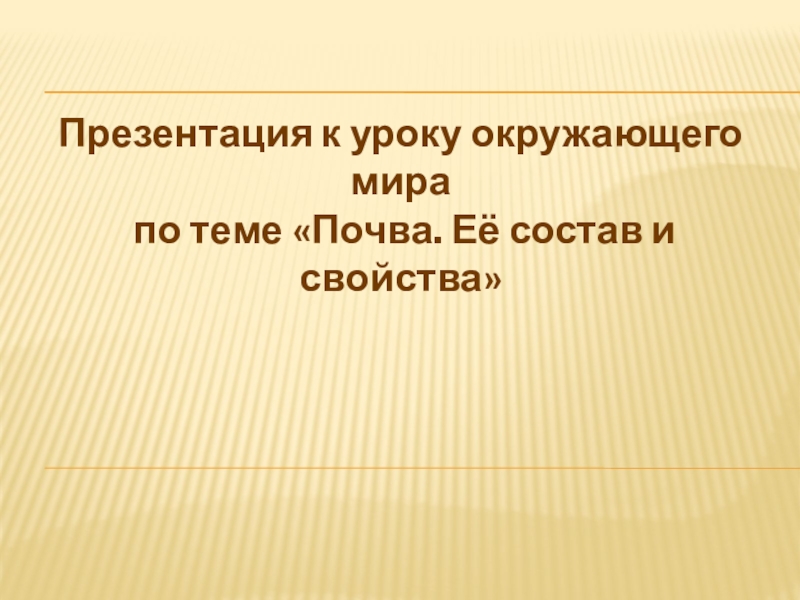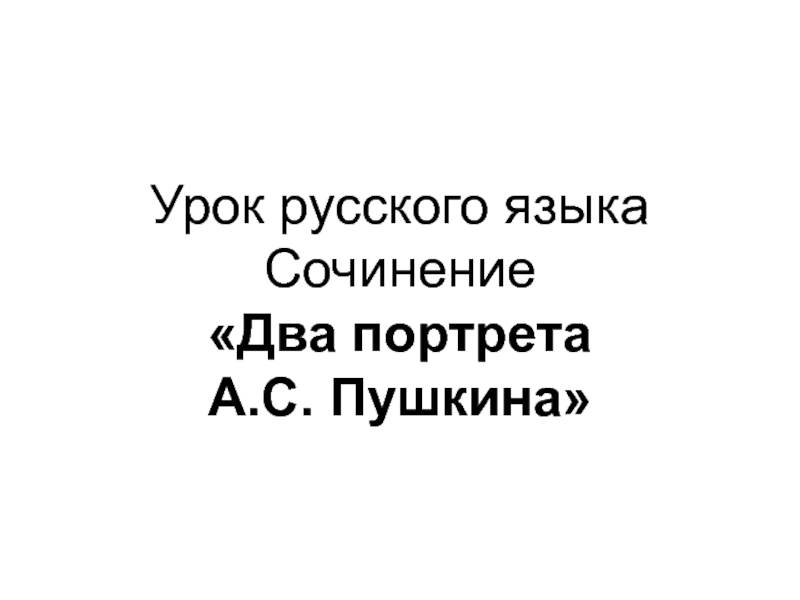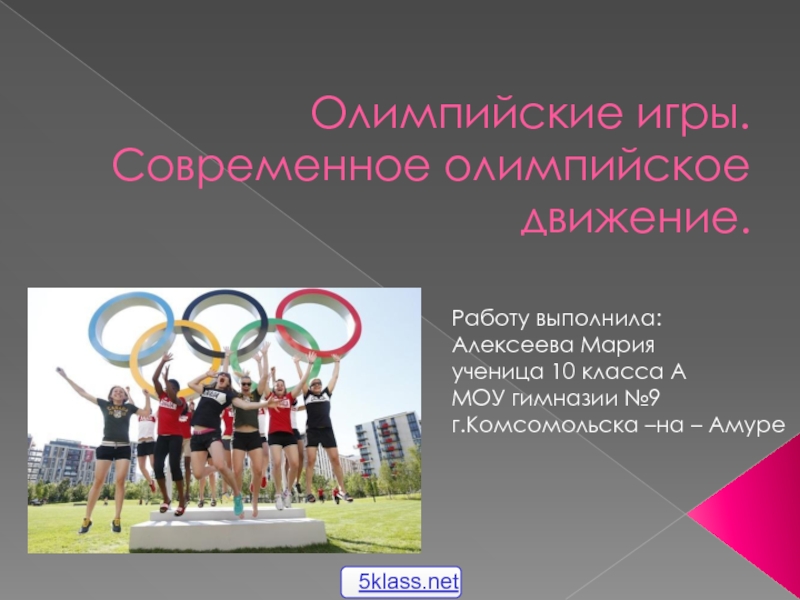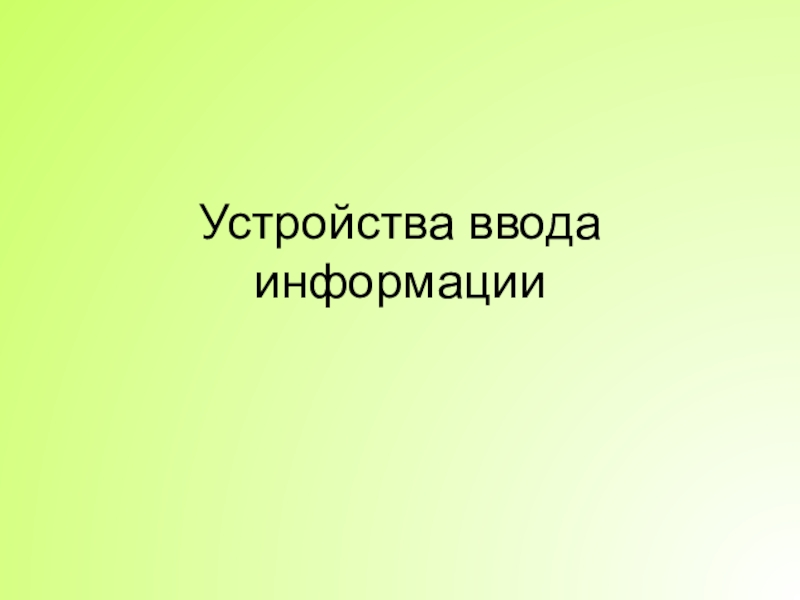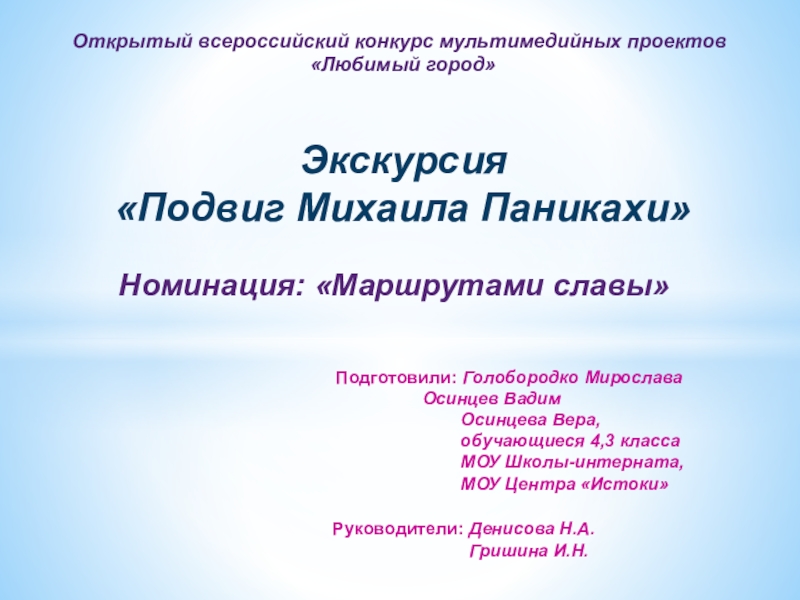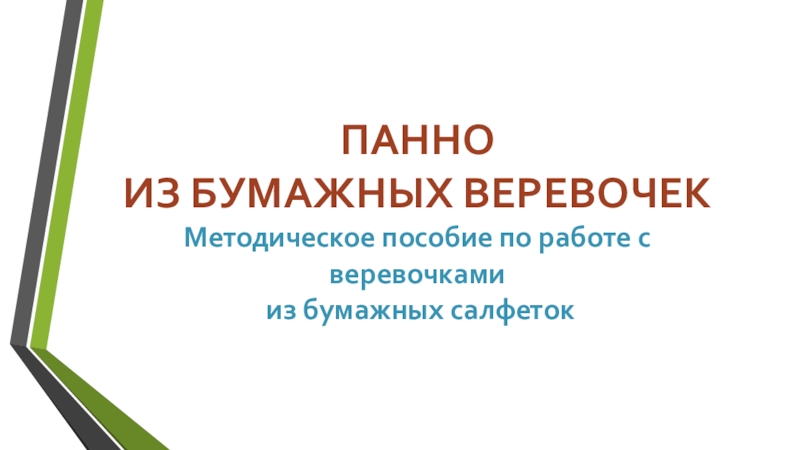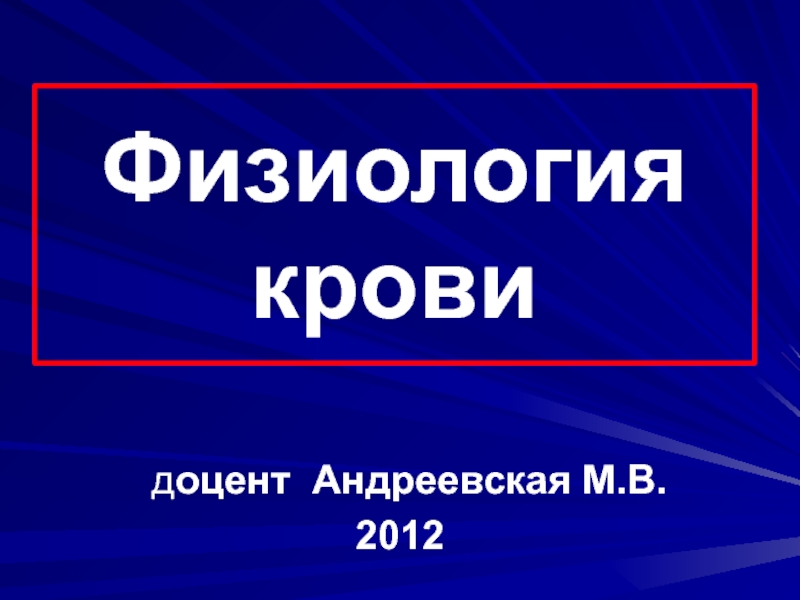Разделы презентаций
- Разное
- Английский язык
- Астрономия
- Алгебра
- Биология
- География
- Геометрия
- Детские презентации
- Информатика
- История
- Литература
- Математика
- Медицина
- Менеджмент
- Музыка
- МХК
- Немецкий язык
- ОБЖ
- Обществознание
- Окружающий мир
- Педагогика
- Русский язык
- Технология
- Физика
- Философия
- Химия
- Шаблоны, картинки для презентаций
- Экология
- Экономика
- Юриспруденция
ПРИЧАСТИЕ THE PARTICIPLE
Содержание
- 1. ПРИЧАСТИЕ THE PARTICIPLE
- 2. Слайд 2
- 3. ФОРМЫ ПРИЧАСТИЯ
- 4. Примеры:The woman, sitting at the window, is
- 5. PARTICIPLE IПеревод: окончаниями -щий, -щая,
- 6. PARTICIPLE IIПеревод: завершенным действием в пассивном залоге (break-broken разбитый, do-done сделанный)
- 7. PERFECT PARTICIPLEПеревод: сделав что-либо (Having prepared the
- 8. The garden was full of children, laughing and shouting. Could
- 9. Функции причастия в английском языке Причастие может
- 10. Определите функции причастийIn a large, hot, richly-furnished
- 11. НЕЗАВИСИМЫЙ ПРИЧАСТНЫЙ ОБОРОТ (THE NOMINATIVE ABSOLUTE PARTICIPIAL
- 12. This being understood, the conference was over.
- 13. I saw him cross the street (Complex
- 14. Выберите из скобок требующуюся форму причастия. 1
- 15. 6. Do you know the girl (playing,
- 16. Скачать презентанцию
Причастие - это одна из неличных форм глагола (не указывающая на лицо и число), совмещающая в себе свойства глагола и прилагательного
Слайды и текст этой презентации
Слайд 4Примеры:
The woman, sitting at the window, is my aunt.
Being cooked
in good mood every dish seems to be tastier.
The boy,
lost in the forest, is my nephew.Having finished the project, we started the new one.
Having been once thrown into water the dog was afraid of children.
Слайд 5PARTICIPLE I
Перевод: окончаниями -щий, -щая, -щие, -щее
или -я
Обозначает процесс
Being + V3 вариант перевода
(будучи…)Слайд 6PARTICIPLE II
Перевод: завершенным действием в пассивном залоге (break-broken разбитый, do-done
сделанный)
Слайд 7PERFECT PARTICIPLE
Перевод: сделав что-либо (Having prepared the report I submitted
it to authorities-Закончив отчет , я сдал его руководству)
Слайд 8The garden was full of children, laughing and shouting.
Could you pick up
the broken glass?
The woman sitting by the window stood up and left.
I
walked between the shelves loaded with books. Be careful when crossing the road.
Having driven 200 kilometers he decided to have a rest.
I felt much better having said the truth.
He looked at me smiling.
She had her hair cut.
Built by the best architect in town, the building was a masterpiece.
Being opened in time the shop attracted many visitors.
Слайд 9Функции причастия в английском языке
Причастие может служить в предложении:
1) определением:
Watches made
in Jupan are very popular in many countries. — Часы,
сделанные в Японии, очень популярны во многих странах.2) именной частью составного сказуемого:
Victor was missing from the last lesson.— Виктор отсутствовал на последнем уроке.
3) обстоятельством:
When crossing the street, first look to the left, then to the right.— Переходя улицу, вначале посмотрите налево, потом направо.
Not knowing what to do they wrote a letter to their professor asking for information.— He зная, что делать, они написали письмо своему профессору, запрашивая информацию.
Слайд 10Определите функции причастий
In a large, hot, richly-furnished drawing-room two women
were sitting.
Women from 111 countries and belonging to 132 national
organizations took part in the meeting.I looked at the bookshelf: one book was missing.
The flat was furnished in a modern style.
Knowing English well he was able to read this magazine.
The Professor did not exaggarate when he spoke of the widespread interest excited by his new experiment.
Having done the question-and-answer exercises, the students began to write a composition.
Слайд 11НЕЗАВИСИМЫЙ ПРИЧАСТНЫЙ ОБОРОТ
(THE NOMINATIVE ABSOLUTE PARTICIPIAL CONSTRUCTION)
Независимый причастный оборот представляет
собой сочетание существительного в общем падеже или местоимения в именительном
падеже и причастия (причем существительное или местоимение не является подлежащим в предложении). В конструкции может использоваться как причастие I, так и причастие II:The door of the room being open, we came in. Так как дверь комнаты была открыта, мы вошли.
В предложении независимый причастный оборот выделяется запятой и выполняет функцию обстоятельства.
Если независимый причастный оборот стоит в начале предложения, он переводится на русский язык придаточным предложением времени, причины, условия с союзами когда, так как, если. Независимый причастный оборот в конце предложения обычно переводится самостоятельным предложением (иногда со словами при этом, причем).
Слайд 12This being understood, the conference was over.
Mrs. Jones going
to New York, Mr. Smith took up her position.
The
fifth of June arriving, they departed. The concert being over, the lottery came next.
Dinner being over, the old lady asked Barbara to come and sit on the sofa near her.
The other conditions being equal, the acceleration will be the same.
A new technique having been worked out, the yields rose.
All factors considered, we started the experiment.
All the equipment removed, the explorers stopped working.
Когда все оборудование было убрано, исследователи прекратили работу.
The choice having been made, all the other alternatives have been rejected.
После того как выбор был сделан, все другие возможности были
опровергнуты.
